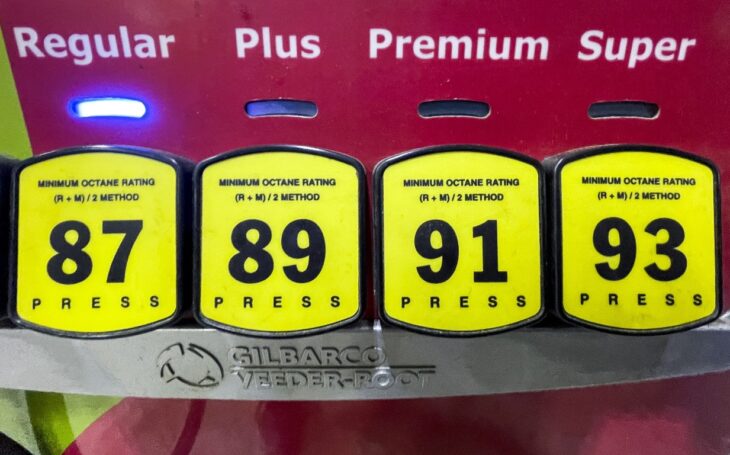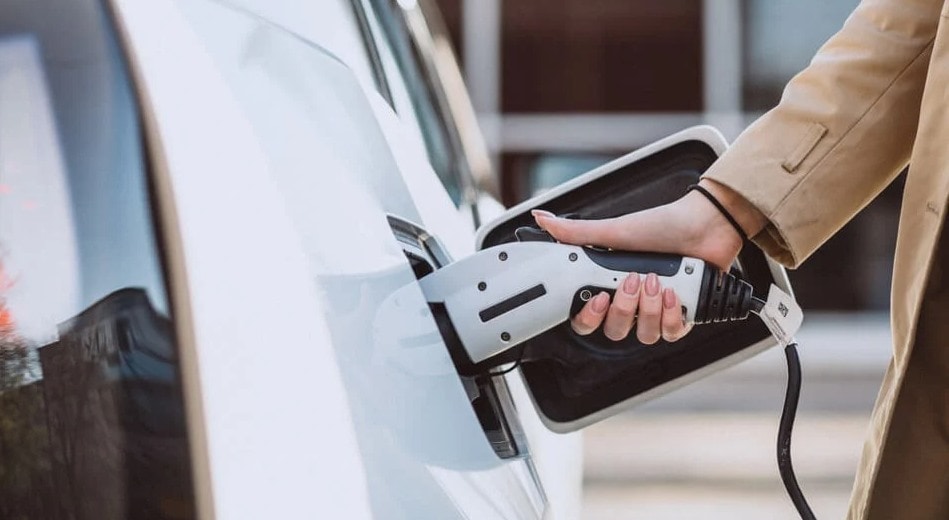Just paid extra for the fancy petrol? Don’t worry, we’ve all been there – you pull up to the gas station, and in a hurry, you accidentally pump premium gas into your car instead of regular.
Will premium gas damage your vehicle if it only needs regular gas? Or perhaps you’ve needed premium fuel the whole time, read on to find out!
Table of Contents

It’s crucial to understand the distinction between standard gas and premium gas. The octane rating of standard gasoline in the US is 87, while that of premium gasoline is 91 or higher.
The term “premium” gas is defined differently in different nations, so it’s critical to know exactly what you’re getting for your money at the pump. For instance, in New Zealand, standard gas has an octane rating of 91, while premium gas has a rating between 95 and 100.
Fuel octane relates to knocking in an engine because it measures a fuel’s ability to resist knocking, which is a type of engine combustion that can cause damage to the engine.
Knocking occurs when the air-fuel mixture in the engine’s combustion chamber detonates prematurely, instead of burning smoothly and evenly. This can cause a knocking sound and can damage the engine over time.
Higher octane fuel is less likely to detonate prematurely, making it a better choice for high-performance engines that generate more heat and pressure in their combustion chambers. Now you know why people pay more for premium gas!

Usually, there would be a sticker on the fuel cap that would tell you if premium gas is required or not. Usually, if an especially high octane is needed (95+), then the gas cap should let you know.
Cars that have been imported from Japan or Europe are likely to need higher octane fuel, if you are driving an import, then it is best to check with the manufacturer or consult your user manual to check which fuel your car needs.
So, if you accidentally put premium gas in your car instead of regular, will it cause any harm? The short answer is no. In fact, your car will most likely run just fine on premium gas.
The difference in octane rating between regular and premium gasoline isn’t significant enough to cause any harm to your car’s engine. Your car’s engine control unit (ECU) will adjust the ignition timing and other settings to accommodate the higher octane rating of the premium gas.
However, there is a catch. While your car may not be harmed by using higher-octane fuel, you will be wasting money! Obviously premium gas is more expensive than regular gas, and if your car doesn’t require it, it really is just a waste of money to buy it.
It’s important to note that using premium gas in a car that doesn’t require it won’t improve its performance or fuel efficiency in any way (despite what your neighbor may swear by).
Check the owner’s manual before using any sort of gasoline because doing so could violate the vehicle’s warranty and use a fuel that is not suggested by the manufacturer.
In some cases, using premium gas in a car that doesn’t require it may even have a negative impact on your car’s performance and fuel efficiency.
That’s because premium gas can cause incomplete combustion in the engine, which can lead to reduced power and decreased fuel efficiency. However, there is no need to worry about short-term damage to your vehicle.
So, what should you do if you accidentally put premium gas in your car? If you’re driving a car that requires premium gas, then you have nothing to worry about. Your car will run just fine on the premium gas, and you can continue to fill up with it in the future. However, there really isn’t much point as you will simply be throwing money away!
Are There Any Other Issues To Be Aware Of?
There are a few more points to take into consideration if you have accidentally filled up with fuel that you are not familiar with.
Did You Fuel Up with Diesel in a Gasoline Car?

If you put diesel in a gasoline car, it can cause significant damage to the engine. Diesel fuel is thicker and less volatile than gasoline, which means it doesn’t vaporize as easily.
Gasoline engines rely on a mixture of fuel and air that is ignited by a spark plug to create combustion.
Diesel fuel, on the other hand, is ignited by compression alone. When diesel fuel is used in a gasoline engine, it can cause incomplete combustion, which can damage the engine’s components.
The cost of repairing the damage caused by using the wrong fuel can be very expensive. Luckily, diesel fuel is usually clearly marked with a black handle & warning, and it would be very difficult to make this mistake!
Is the Fuel Part Ethanol?
Many gasoline formulations in the US contain up to 10% ethanol. Ethanol is a type of alcohol that is blended into gasoline to help reduce emissions and increase the octane rating.
However, ethanol has a lower energy content than gasoline, which can lead to decreased fuel efficiency. Additionally, ethanol can attract moisture and cause corrosion in the fuel system.
Practically speaking, most modern cars built in the last 20 years will not have any issues with a slight ethanol mix, however if you are running an older vehicle that doesn’t use fuel injection, then it is best to stay clear of any fuel with an ethanol mix.
Long Term Effects?
If the engine is constantly running on a higher octane fuel than it needs, it may become dependent on that fuel and have difficulty running on lower octane fuel in the future. This is because the engine’s ECU adapts to the fuel that you are putting into it over a long enough time frame.
Remember, always check your car’s owner’s manual to determine what type of gasoline your car requires, and only use premium gas if your car specifically requires it. Although in conclusion, if you did put premium gasoline in your vehicle by mistake, then there is really no need to worry!

